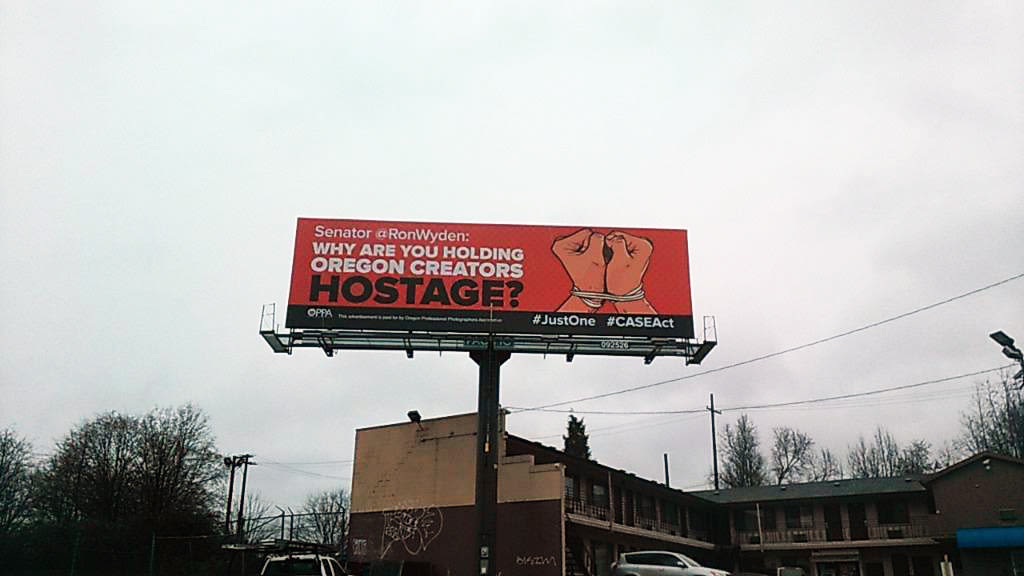CASE Act Billboard Targets Senator Wyden

Image: Courtesy OPPA
“Why are you holding Oregon creators hostage?”
These screaming letters, plus a graphic of two shackled hands, appear on a billboard erected this week by the Oregon Professional Photographers Association (OPPA) at the intersection of N Broadway St. and Benton Ave. in Portland.
The target: Sen. Ron Wyden, who’s the one thing standing between the CASE Act—which would establish a small-claims system for creators seeking compensation for unauthorized use of copyrighted material—and a Senate vote.
According to proponents like OPPA, the CASE Act would make it easier for artists to receive compensation when their work is used publicly without permission. This would benefit photographers, whose work can be easily replicated and reposted online, and musicians whose songs might be used in videos or at events such as political rallies (as famously happened to John Mellencamp in 2008).
This is not the first time Sen. Wyden has drawn the ire of Oregon creators by putting a hold on a bill benefitting artists. In 2018, he put a hold on the CLASSICS Act of the Music Modernization Act, which would federally protect digital audio transmissions of recordings made prior to 1972. An informal group called the “Music Army,” including members of Songwriters of North America (SONA), protested this move with a billboard reading: “Why do you hate music?”
“There’s a pattern with this particular politician,” says SONA executive director Michelle Lewis.
Michael Shay, owner of local photography studio Polara Studio, says he’s attended Wyden’s town hall meetings to no avail.
“We’ve gone to three of his town halls, and Sen. Wyden has said he was going to work with us to make some minor changes and move forward,” says Shay. “And in fact, his Washington staff has done the exact opposite.”
In a statement sent through press representative Keith Chu, Wyden says: “I support what the CASE Act is trying to do, but I have concerns about the way the bill is currently written […] I’m concerned that the CASE Act makes it too easy for shady lawyers who are already trolling the courts to go after internet users who are engaging in fair use, but don’t have the knowledge or tools to defend themselves. We should not be creating a system where teenagers and their parents are getting hit with thousands of dollars in default judgments for some memes the kids posted.”
